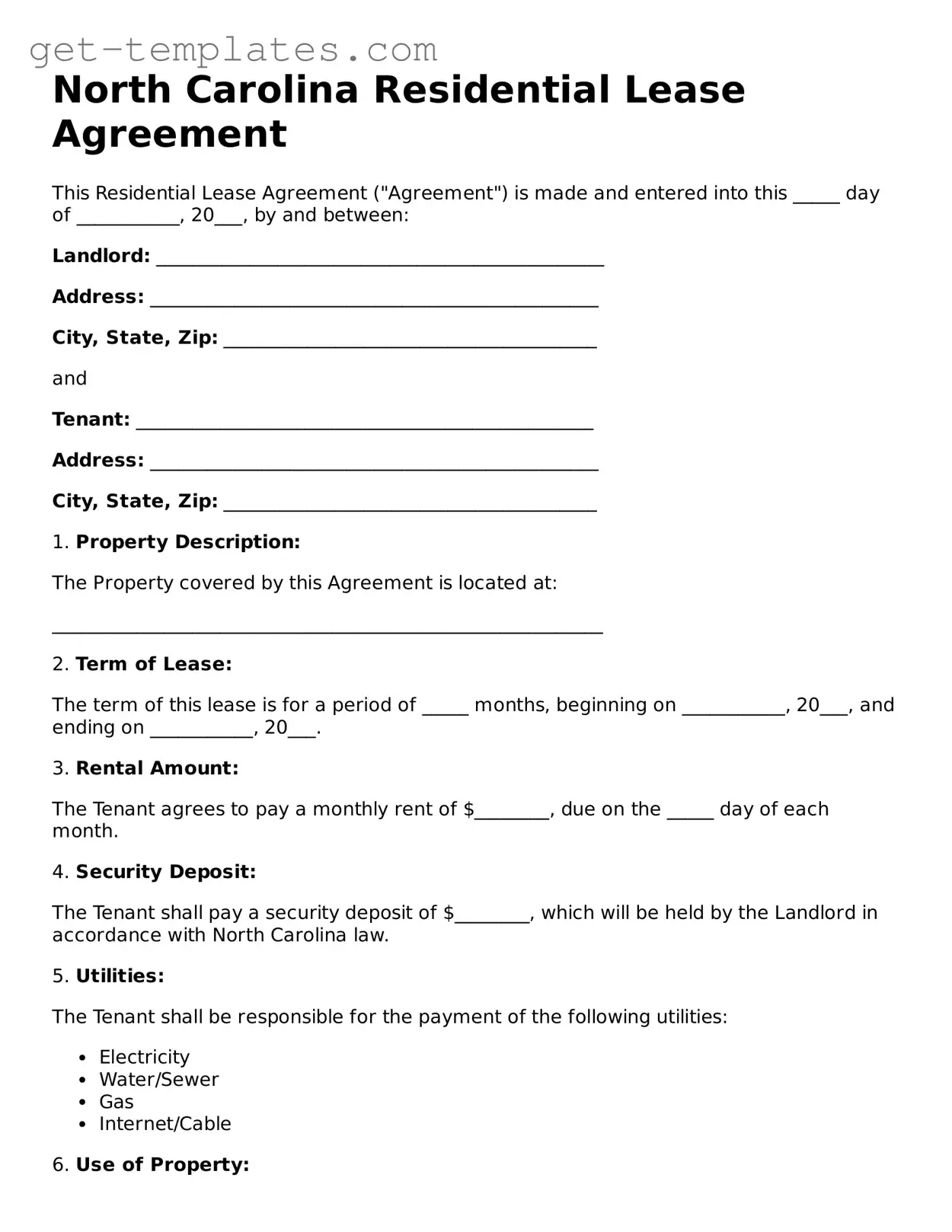Attorney-Approved Residential Lease Agreement Document for North Carolina
The North Carolina Residential Lease Agreement is a legally binding document that outlines the terms and conditions between a landlord and a tenant for renting residential property. This agreement serves to protect the rights of both parties while providing clarity on responsibilities, payment terms, and property maintenance. Understanding this form is essential for anyone looking to rent or lease property in North Carolina.
Get Document Online

Attorney-Approved Residential Lease Agreement Document for North Carolina
Get Document Online
You’re halfway through — finish the form
Finish Residential Lease Agreement online — edit, save, download made easy.
Get Document Online
or
⇓ PDF Form
